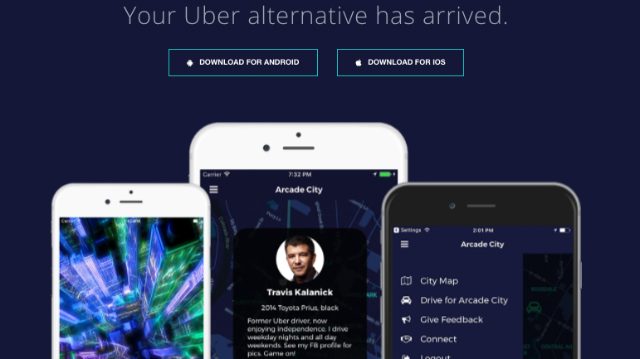SUMMARY
This is AI generated summarization, which may have errors. For context, always refer to the full article.

MANILA, Philippines – Another day, another Uber alternative.
This Thursday, August 17, it’s a company called Arcade City that’s making the rounds online. Just a day after announcing that they will be “recruiting and activating drivers” to “provide service in the gap left by Uber’s abrupt withdrawal,” the service is already trading jabs with the Land Transportation and Franchising Regulatory Board (LTFRB).
Arcade City says in an online press release: “We forgive the LTFRB for ordering Arcade City to ‘cease operations’ before they understood what Arcade City is and is not, specifically how Arcade City is different from Uber.”
On August 16, the LTFRB issued a cessation order, where it said that it considers Arcade City as another transport network company (TNC) and told them to stop bookings on the platform.
Arcade City contends that it “does not provide ‘pre-arranged transportation services for compensation’ and therefore does not fit the LTFRB definition of a transportation network company.”
LTFRB’s memorandum on TNCs defines the term as an “organization whether a corporation, partnership, or sole proprietorship that provides pre-arranged transportation services for compensation using an internet-based technology application or digital platform technology to connect passengers with drivers using their personal vehicles.”
Arcade City explains further that while drivers may freely identify as Arcade City drivers, “Arcade City does not require payment from riders or drivers.” Arcade City calls the system a new “peer-to-peer model of ridesharing” – both riders and passengers find one another on the app, but Arcade City doesn’t set the rates like Uber or Grab does. Instead, according to their press release, “drivers are free to set their own rates.” Essentially, Arcade City is an open market, where buyers (riders) and vendors (drivers) strike deals.
How does it make its money? Arcade City takes 10% of the rides paid through the app according to a May 2016 article by U.S. website Vice. It also described Arcade City as the “black market Uber that runs on Facebook.” For a time, Arcade City connected riders and drivers via the Facebook group “Arcade City Austin/Request A Ride” before it relaunched its app.
The Facebook group is still online, where Arcade City founder and CEO Christopher David (pictured below) is one of 3 administrators.
“Let’s play,” David says in his re-posting of Arcade City’s statement to the LTFRB:
David is a former Uber driver in the U.S. state of New Hampshire, who has been vocal against his distaste for corporate authority.
In an interview with cyrptocurrency site Coin Telegraph, David said that while government regulation is definitely an issue for drivers, an even bigger issue has been “drivers being mistreated by the distant corporate HQ.”
“Uber and Lyft are run by nerds in San Francisco. To them, drivers are just numbers. The fares that determine drivers’ livelihood are just levers to push and pull to maximize profit. The driver uproar and mass protests following last week’s rate decrease tells me this is the perfect time to launch a decentralized alternative,” said David, making references to Uber fare decreases in 2016 and his decentralized alternative Arcade City.
Mirroring the current situation in the Philippines, Arcade City emerged in Austin, Texas after Uber and Lyft withdrew. The two ride-sharing companies exited in May 2016 after disagreements on regulations, but finally returned in June 2017. During their hiatus, Arcade City built up their ridesharing network that they say now has 43,000 members. – Rappler.com
Add a comment
How does this make you feel?
There are no comments yet. Add your comment to start the conversation.